As a Haitian American technologist, my experiences have given me a deep understanding of the interplay between technology, governance, and society. A key moment in my journey was my visit to Haiti in 2018, an eye-opening experience that showcased the vast potential for e-Governance in a country where, despite inconsistent electricity, digital engagement is a substantial part of everyday life. This trip predated my 2019 Fellowship with Code for America and my subsequent roles with Code for Miami and Code for South Florida. It was during my time as a Fellow at Code for America and later as a volunteer and eventually Executive Director at Code for Miami and Code for South Florida, respectively, where I further developed my insights under the mentorship of Michael Sarasti, the former Director and CIO of the City of Miami’s Department of Innovation and Technology.
Defining e-Governance
E-Governance refers to the use of information and communication technologies (ICTs) by government agencies to enhance the access and delivery of government services to the public, improve management effectiveness, and promote democratic values. It’s more than just an online presence; it’s about transforming government processes and structures to be more responsive, transparent, and efficient.
Estonia: A Case Study in e-Governance
Estonia stands as a global benchmark in e-Governance. Post-Soviet Union, it embarked on a rapid digital transformation. Today, Estonians can vote, pay taxes, check health records, and even start a business online, seamlessly and securely. This was achieved not through a focus on infrastructure like the electrical grid but rather on digital infrastructure, policy, and public engagement.
Why the Focus Shouldn’t Be Solely on the Electrical Grid
The common misconception that a robust electrical grid is a prerequisite for effective e-Governance overlooks the reality of digital resilience in places like Haiti. During my 2018 visit, I saw firsthand how Haitians, despite erratic electricity supply, remain avid internet users. Internet cafes, phone battery charging stations, and widespread use of smartphones for accessing social media platforms like WhatsApp, Facebook, YouTube, and Twitter are testament to this.
Haitians are already plugged into the digital world, but what’s lacking are platforms for digital governance. Focusing solely on the electrical grid, while important for broader development, can delay the implementation of much-needed e-Governance services.
Role of the Diaspora and Civic Tech
The Haitian diaspora can play a pivotal role in bridging this gap. By supporting open-source civic tech projects, we can provide a low-barrier-to-entry solution for local governments in Haiti to initiate their digital transformation. Open-source civic tech fosters transparency, community engagement, and innovation, offering tailor-made solutions that are adaptable to the local context.
Civic tech projects can range from simple information portals to more complex systems for online voting or public service delivery. These platforms can be designed to function efficiently even with sporadic electricity, using low-bandwidth and offline capabilities.
Attracting Diaspora Investments through Digital Platforms
Effective e-Governance is not just about service delivery; it’s also about building trust and efficiency that can attract investments. The Haitian diaspora, often eager to contribute to their homeland’s development, can be more effectively engaged through transparent and efficient digital platforms. This engagement can take many forms – from direct investments to skill-sharing and advocacy.
Conclusion
Haiti’s path to e-Governance should not be stalled by the quest for a perfect electrical grid. The existing digital engagement of its citizens provides a strong foundation to build upon. By focusing on digital infrastructure and leveraging the power of open-source civic tech, Haiti can make significant strides in improving governance and public service delivery. The Haitian diaspora, with its unique understanding and connection to the country, is well-positioned to champion this transformation, helping to create a more connected, efficient, and resilient Haiti.
-Whitney Lubin
